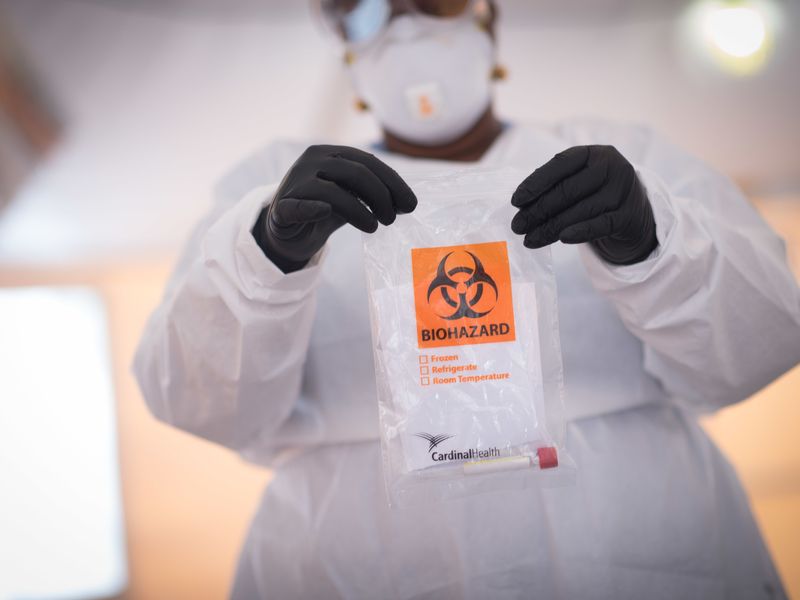 Michael Appleton/Mayoral Photography Office
Michael Appleton/Mayoral Photography Office
COVID-19 testing site sat the Highbridge Recreation Center in Manhattan on Tuesday, May 19, 2020.
Stronger-than-anticipated demand for COVID-19 testing, fueled in part by the spread of the highly contagious delta variant, is ramping up revenue for local laboratories.
Illustrating the extent of the boom, Quest Diagnostics on Thursday raised its full-year revenue outlook by hundreds of millions of dollars. The Secaucus, N.J.–based company cited “stronger than anticipated” demand for its molecular COVID tests since it released its second quarter financial results and full-year guidance on July 22.
Quest now expects a full-year net revenue of $9.8 billion to almost $10.1 billion, up from the outlook of $9.5 billion to $9.8 billion it reported in July. Adjusted diluted earnings are projected to reach $11.65 to $12.35 per share, compared with the previous guidance of $10.65 to $11.35 per share.
Buoying the upgraded guidance is Quest’s assumption that it will run, on average, at least 40,000 molecular COVID tests per day in the second half of this year—twice what it previously projected.
In a presentation Thursday as part of Morgan Stanley’s 19th global healthcare conference, CEO and President Steve Rusckowski said the increased guidance is “exclusively related” to a delta-driven testing surge. Quest is now running about 100,000 tests per day, up from 30,000 to 40,000 per day in June, he said.
CFO Mark Guinan said the spike happened around late July and early August and was apparent across the country, including significant increases in New York and New Jersey. Guinan said the major driver for Quest has been diagnostic testing, as opposed to public health surveillance.
Quest gets an average of $90 in revenue for each molecular, or PCR, test, although profitability varies depending on where it is performed and whether Quest can pool together samples for processing to lower its expenses, said Guinan.
“COVID is a significant contributor to the top and bottom line,” he said.
Applied DNA Sciences, which manufactures and processes COVID tests, foresees increased revenue thanks in part to new surveillance programs it is launching for the City University of New York and Suffolk County Community College.
“We are seeing existing clients—academic ones especially—come back to us to implement testing with the start of the new academic year and, in some cases, increase their testable populations above those levels we tested last year,” said Dr. James A. Hayward, president and CEO.
The Stony Brook-based company reported $1.7 million in revenue for the three months ending June 30, up 294% from the same period last year, due to surveillance testing and sales of its COVID testing kits.
It’s a similar story for BioReference Laboratories, an Elmwood Park, N.J.–based subsidiary of OPKO Health. The diagnostics company has seen daily COVID testing volumes of 25,000 to 30,000 for the past few weeks, about double what it saw earlier in the summer, a spokeswoman said.
BioReference CEO Dr. Jon Cohen said its spike came in late June and early July, also attributing it to the delta variant. Testing volumes are still lower than at the pandemic’s spring 2020 peak, he said, but he expects volume to hold through the first half of next year thanks to a large surveillance-testing business. Clients include sports leagues, cruise companies, employers and schools.
OPKO reported $397 million in testing services revenue during the second quarter, up 58% from the same period the previous year.
The landscape is constantly changing. President Joe Biden announced Thursday that private companies with more than 100 employees will have to require its workers to get the vaccine or face weekly COVID tests, which could bring yet another surge for laboratories like BioReference.
“Every day I wake up and I’m surprised about the pandemic,” Cohen said. “It’s very hard to predict what’s happening with this.”
Source link : https://www.modernhealthcare.com/finance/quest-other-labs-see-windfall-delta-driven-covid-testing-surge











